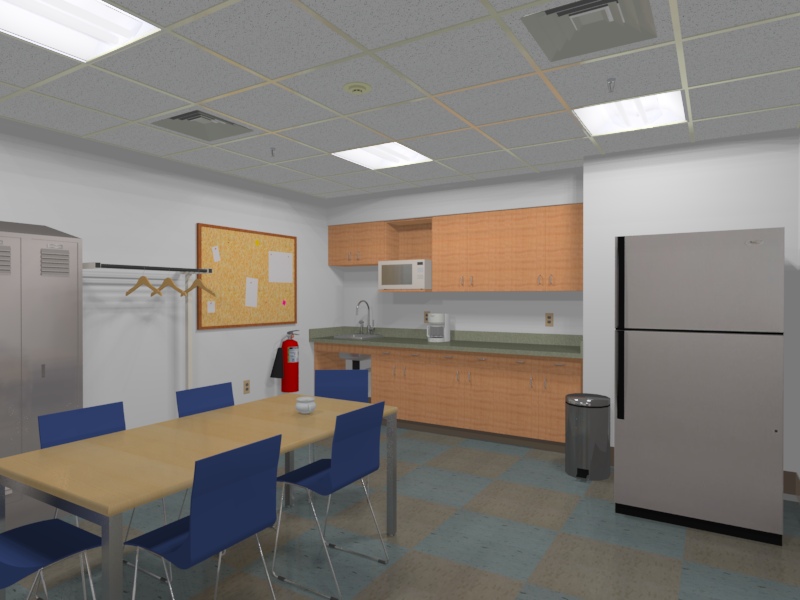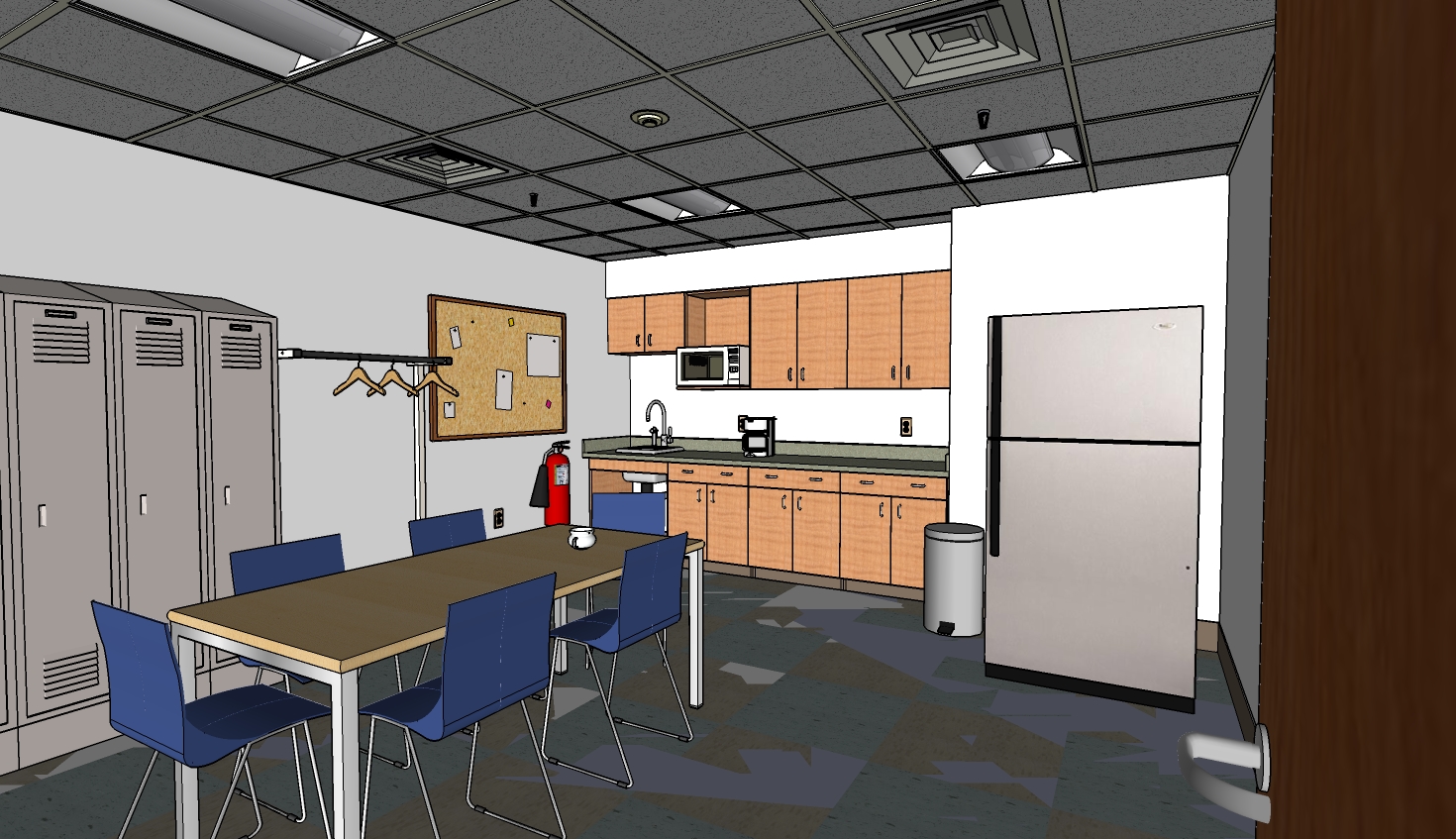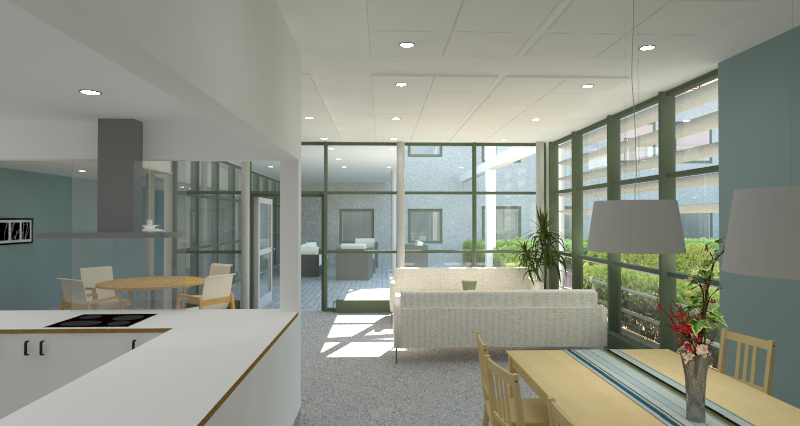Which Photorealistic Renderer?
-
@pixero said:
@unknownuser said:
This was done with Irender Nxt it to 2hours to render.
Two hours for 800x600 pixels?
Sorry, but I think that is laughably slow at that resolution.
I have tried IrenderNxt but quickly gave it up because of its utter slowness.
Once again, sorry. Nothing personal.Hey,
Oh no offense taken, Pixero. We also have Maxwell render here too and that takes more than three as long. That's why render houses will take these files... I'd like to know that you use then...and how much did you pay for it? Sure, I could render it in shorter time but I won't like the results. I was able to use this software to make a presentation for a client on a Hospital that was more acceptable in the same given amount of render time than what Maxwell produced. I like the fact that it works inside of Sketch-Up and it has two versions both under $400. Most of the other renderers either look to "cartoony" or they just look unnatural. And IRender Nxt is very architecturally friendly. My main issue with it is that its CPU based and not GPU based.. So if I was running 8 cores on a dual CPU machine quad core machine, the same rendering would take aprox. 30 minutes or less. This is a dual core 2.6Ghz machine w/ 4GB of running on Win.XP Pro. with PC667 memory. So with a newer board this could be faster. Also, the more materials, light and reflections you have the slower it is too. This model has 6 sides and over 45 high-res materials, maybe 10 to 15 reflective materials and 8 lights in it with indirect lighting from surface bouncing (this room looks really great at 3600x2400). With non glossy materials and no indirect lighting, the same rendering with 1/2 the materials takes 15 to 20 minutes (to get the same number of passes)... What do you use? I'm always willing to try new things. Thanks.
-
@serge.n said:
To extend the topic, does anyone know how much photorealistic are all theses tools?
I mean is there a way with one of them to know light levels and so verify the IEQ credits 8.x of LEED?
Thanks
SergeI agree with Decipher, but Light-up does feature a light meter in version 1.5+. I personally like IRender Nxt for a few reasons: It works inside of SketchUp so there is no translating to be done. The 30 day version allows you to make the rendering as large as you want. You can create lamps, foliage and video with it. And, you have control over every individual material with it. Here is a render I did for work with it at 800x600. It also works with Sketchup free and Pro. We also use Maxwell for rendering but if you have more than a hand full of lights, you may as well send it out to a renderfarm because it will take forever to get good results. It's also about $1000. IRenderNxt is $400. It's worth it though, and there is a light version that works similar to Podium for $80. FYI, the ceiling grid was done with 1001bit tools at http://www.1001bit.com


-
I use Vray for SU and MentalRay for Max.
For a current animation with a very heavy model exterior and interior flythrough, 800x426 pixels, the render time was approx two minutes per frame with Vray for SU.
-
@pixero said:
I use Vray for SU and MentalRay for Max.
Exactly. See you get what you pay for. Vray is almost $800 and Max, well, if you think that paying the price of a used car for software is worth it, then go right ahead. Right now for a starter that's too much for my blood.

My whole point for the questioner was that you can get Sketch-Up free and for under $400 you can get a renderer that works inside of Sketch-Up with half descent results.. Sure renderings may take a while but you get what you pay for. Or for less than $200 you can get IDX Renditioner, Podium, and Light-Up. Three descent programs that will give you nice results. Or for less than $100 you got IRender Basic with the same engine as IRender Nxt just less versatile with materials...and no animation.
My suggestion is to try as many as you like till you find what works best for you, then pick that one and master the settings... experiment for a month with each. Fall in love with software then make people ask you.. "How did you do that?"
By the way Pixero, that's a nice rendering... You did this in Max? How long did it take you to model it? Nice flower and outdoor space.
Yeah, I think when I finish putting together my new machine I will eventually look at VRay for my personal higher end renderer. Is it easy to use? That one I have not tried yet.
-
@unknownuser said:
Vray is almost $800 and Max, well, if you think that paying the price of a used car for software is worth it, then go right ahead. Right now for a starter that's too much for my blood.
A quick Google search and I found Vray for SU for $720 at Novedge. I bought me a home license before the summer at a campaign price from somewhere for about $650 so its not THAT much more expensive. But if time is no restrain for you go with Maxwell...great images but takes forever to render.
Don't forget there are some great free renderers like Kerkythea thats most likely a whole deal better than IDX.
I can say I have tried them all and to me the important aspects are: Image quality, speed, workflow and ability to handle complex scenes without choking.
My advice is to go with a free renderer if your new to rendering. Then as you find it too limited for your needs go for a better one.
No renderer is better than its user. And to me as a professional user speed is one of the mayor factors to be able to deliver on time. Or for citing Electric Image renderers old slogan: Render fast, retire young.@unknownuser said:
By the way Pixero, that's a nice rendering... You did this in Max? How long did it take you to model it? Nice flower and outdoor space.
Thats Vray and Sketchup. I'll try to post a lowres version of the animation once its done.
@unknownuser said:
Yeah, I think when I finish putting together my new machine I will eventually look at VRay for my personal higher end renderer. Is it easy to use? That one I have not tried yet.
I cant really comment on if its easy or not. That depend on your prior knowledge. I find it quite easy, but then again others don't.
Advertisement







